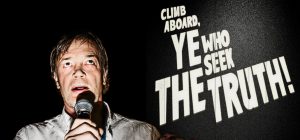Continuing a discussion I and one or two others were having in the thread vincent-torleys-disappearing-book-review it is of little surprise that those responding to what I said, along with many of the posters here, regard consciousness as a product of matter. I believe that it is the other way round. As with Owen Barfield and John Davy, I came to this conclusion many, many years ago, and for me like them, Rudolf Steiner was a big influence in solidifying this view. Here is an extract from an article about Owen Barfield from Richard A. Hocks
Barfield’s precoccupation with the history of consciousness is different from even the most saturated analyses of the past, such as Erich Auerbach’s Mimesis. Barfield maintains that, in any thoughtful consideration of evolution, it is both more reasonable and more illuminating to hold that mind, or consciousness, precedes matter rather than the reverse–though not individualized mind or self-consciousness. Not only does the origin of language point toward this supposition but also the content of the great myths, indeed even the very archetypes that a thinker like Jung explores so deeply yet without ever considering that that they might inhabit the world “outside” the human head–or a vast collection of human heads. In other words, evolution for Barfield begins with mind as anterior to matter, as a given “field” out of which, as it were, matter compresses. Barfield’s thesis herein does not merely challenge the Darwinian argument; in a sense it turns that argument on its head: for not only does mind precede and bring matter into being, and a form of intentionality replace chance-ridden natural selection, but the very same physical evidence used in support of the received position is never directly challenged or discredited, but interpreted differently…
Here are some words from John Davy (pseudonym, John Waterman) who gives an overview of Steiner’s thoughts on the evolution of physical life better than I ever could:
John Davy:
The evolution of man, Steiner said, has consisted in the gradual incarnation of a spiritual being into a material body. It has been a true “descent” of man from a spiritual world into a world of matter. The evolution of the animal kingdom did not precede, but rather ;accompanied; the process of human incarnation. Man is thus not the end result of the evolution of the animals, but is rather in a certain sense their cause. In the succession of types which appears in the fossil record-the fishes, reptiles, mammals, and finally fossil remains of man himself-the stages of this process of incarnation are reflected. Continue reading



